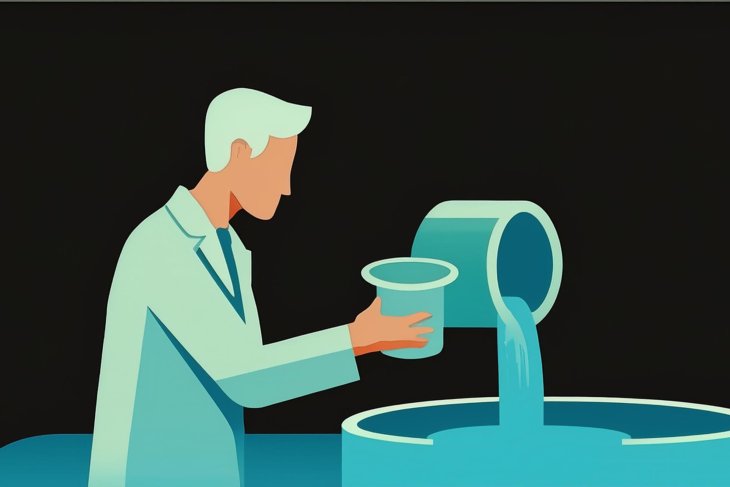Embracing circularity
Transforming leftover sludge from wastewater into polyester compounds is an innovative approach that redefines how we view and use waste. Sewage sludge becomes a valuable asset, contributing to a circular economy. “By extracting polyesters from bacteria in wastewater, we can create materials that quickly dissolve in water, minimising the number of microplastics that end up in the ocean, threatening aquatic life,” says Prof Dr Jeroen Cornelissen, who conducts research in Biomolecular Nanotechnology at the University of Twente.
“These polyester compounds can be repurposed with minimal chemical processing. The goal isn't to throw plastic items back into the sewer but to process them so they can be reused. Moreover, they are highly biodegradable, breaking down naturally in the environment without leaving harmful microplastics,” Cornelissen explains.
Drinking beer from your waste
When the bacteria mix with sewage sludge, they multiply rapidly, producing polyester compounds like metabolites. The innovation lies in extracting these metabolites and processing them into biodegradable plastics that can substitute for petroleum-based plastics.
A company in Drenthe is already producing beer cups from those materials, while another company is enhancing the material properties to suit various other applications, such as keyboards and more. Yet, the production volume is currently small because the produced polymers can vary significantly in their properties, depending on the conditions under which they were created.
Glimpse into the process
The first step in creating these bioplastics is to extract the polymer from the bacteria and waste mixture. “It is akin to brewing coffee: you start with a mixture of coffee grounds and water, then filter it to get pure coffee. Similarly, in this process, certain alcohols are used at controlled temperatures to dissolve the desired polymer from the bacteria-waste mixture containing more than 200 compounds. To ensure purity and uniformity, the polymer-rich solution is further refined to obtain the final bioplastic material,” Cornelissen explains.
Using tools comparable to MRI, the team at the University of Twente will study the extraction process and the properties of the resultant polymers. Finally, they will try to make the material uniform as the properties of plastics are determined by their molecular structure, and they differ in each waste stream. By tweaking the chemical composition or chemically converting the polymers, they can create a uniform material from different starting batches, which can be transformed into manifold applications, such as beer cups, keyboards, and car dashboards.
Challenges
Ensuring a constant stream of materials with a uniform composition and structural properties is one of the biggest challenges. “Bacteria are sensitive to their environment, producing slightly different types of polymers depending on factors like temperature, acidity, and the specific waste materials they consume,” he explains.
For example, when grown in different environments, the bacteria might glue together their building blocks in unique ways. This variability makes it difficult to predict the exact properties of the extracted polymers and, therefore, the eventual application of the material. To solve this, the University of Twente will work on ways to control these conditions. ”We can, if needed, tweak the chemical composition of the raw substances or chemically convert the polymers into a uniform material after extraction. In this way, we ensure that the final material meets the desired specifications, whether for a coffee cup or a car dashboard,” he adds.
By converting waste into a resource, we're moving closer to a more sustainable world, where plastics are no longer a burden on the planet but a sustainable part of our everyday lives. Cornelissen concludes: “We need to invest in more research and work closely with industry to better understand and optimise this process. We aren’t far from a future where bioplastics from wastewater can replace fossil-fuel-derived materials.”




